Why Did Michael McCoy Make Call and Walk Away Less Than One Second After Charlie Kirk Was Shot?
Did instant communication of shooting yield an advantage to someone?
“Tetelestai”—”It is finished”—Jesus is reported to have said right before he died. The construction derives from the verb teleō, meaning to complete, fulfill, or accomplish. Teleology is the branch of philosophy that examines purpose, ends, or goals. Aristotle postulated that everything has a purpose, and that understanding the purpose of something enables us to understand its nature.
Perhaps the greatest moral and spiritual challenge in life—especially within the context of a civilization of enormous material abundance—is to discover the purpose of one’s life.
What am I supposed to do with my brief time in this world? For many of us, it is an extremely difficult question to answer. The question is easier to answer for people who ardently love their parents, children, and friends, for when this is the case, the main purpose of life is to take care of them. For mothers blessed with strong maternal instincts, the answer is self-evident—that is, to protect and provide for her children.
I just watched Jimmy Dore give an exposition of the video-recorded behavior of Michael McCoy—Charlie Kirk’s chief of staff—right after Charlie was shot.
In the above thumbnail image for the video, McCoy is circled in red. He is standing a few feet behind Charlie Kirk, slightly behind the back of the tent, and behind what appears to be a broadcast quality camera with a good lens and probably a good electronic viewfinder.
Before this still image was shot, he can be seen looking at his phone, which he is grasping with his right hand. In this still image, he is holding the face of the phone pressed against his chest, with his left arm crossed over his right.
When the shot is fired, he instantly raises his phone to his right ear, turns, and walks away. The following screenshots track this movement.
A few things to note:
1). The phone goes to his ear without McCoy first dialing a number. This suggests he already had someone on the line when he placed the phone to his chest.
2). As he raises his right hand, clasping the phone, to his right ear, his left hand comes up, towards his left ear, apparently to plug his left ear from all the noise that breaks loose after the shot is fired.
This reminds me walking down the sidewalk in New York, on a business call, when an emergency vehicle passes. In such moments, my reflex is to say “sorry about the sirens,” muffle the receiver, and then resume the conversation after the ambulance has passed.
3). From where he is standing—behind and to the left of Charlie Kirk—McCoy would have no means of knowing where Charlie was shot, the severity of the injury, or his prospects for surviving. Nevertheless, he instantly turns around and walks away, before Charlie slumps all the way back into his chair, and before blood issues from the wound.
4). McCoy can then been seen passing behind and then away from the tent, talking on his phone, while others are running past him. Unlike the people running past him, he doesn’t seem concerned that additional shots may be fired in his direction as he walks behind the tent and through the line of fire of the shot just taken.
5). From there, he keeps walking, past the SUV to which Charlie was taken shortly thereafter, apparently never looking back to assess the situation.
By numerous accounts, and according to military and police psychologists, the experience of standing near someone who is unexpectedly shot is indescribably shocking. Unless one is expecting the shot, the sound and violence stun the witness, whose is instantly charged with a massive dose of “fight or flight” adrenaline.
If one is present when a dear friend gets shot, one’s instinct—perhaps after initially hitting the deck— is to rush to the victim to check his condition. If the victim is apparently dead, the reflex is horror and anguish. Something like this instinct seems to have been captured in the famous image from the Kent State shooting in 1970.
Reflexively, the first phone call one would make would be to 911.
Instantly raising one’s phone to one’s ear and walking away to talk to someone other than a 911 dispatcher strikes me as very strange. The shock and horror would make it very difficult to dial a number and to speak to someone apart from a 911 dispatcher.
Yesterday, October 28, Charlie Kirk’s producer, Andrew Kolvet, responded to the questions that have been raised about McCoy’s behavior. As quoted in the Daily Mail, he made the following statements:
Kolvet said that he had spoken to McCoy about what he did afterwards, but that both of them were so traumatized and in shock at the time they struggle to remember.
McCoy does recall however that he called Erika Kirk, Charlie’s wife, and then his father, pastor Robert McCoy.
‘Charlie had given me similar instructions, if anything ever happens to me you call Erika, and he drilled that into Mikey’s brain so that when this moment of trauma happened, that he turned around and he knew he had to do it,’ Kolvet said.
‘This is part of the video allegations here, they think that, they’re alleging that he was on the phone immediately. He was not. He was taking social videos which he would send to our group chat, which we would then put on Charlie’s social while the event was happening.’
He added that Kirk was only two questions into the event at Utah Valley University when the assassin opened fire, meaning McCoy was using his phone already.
‘It was so blaringly loud, and he was so shellshocked, he put his fingers in his ear, but his phone was still in his hand,’ Kolvet added.
Why would McCoy call Erika Kirk before he had a solitary second to assess the situation?
How did he dial Erika’s number, given that he can be seen instantly raising the phone to his right ear, less than one second after the shot was fired? With all of the ambient noise, it seems unlikely that Siri could have recognized a voice command.
The first question Erika would ask would be, “How is he?” I can imagine a hypothetical conversation proceeding along the following lines.
McCoy: “I don’t know.”
Erika: “What do you mean you don’t know? Why not?
McCoy: “I called you and walked away the second I heard the shot.”
Erika: “Where did the bullet strike him.”
McCoy: “I’m not sure, because I was standing to his left a a few feet behind him.”
Erika: “Could the bullet have just grazed him [like President Trump last summer]?”
McCoy "I don’t know.”
Erika: “Where are you now?”
McCoy: “Walking away.”
Erika: “Can you ask someone about his condition and call me back?
McCoy: “Later. For now, I am going to keep walking away and chatting with you.”
McCoy’s response does not appear consistent with being “shellshocked.” On the contrary, he scarcely flinches when the shot is fired, and he instantly raises his phone to his right ear and walks away.
To be sure, people may react to traumatic spectacles in ways that seem strange to outside observers who are not present. Without being there, one cannot say for sure how one would react, so one should refrain from drawing conclusions without knowing more about McCoy’s mental state.
However, it seems to me that Kolvet’s explanation is not persuasive. As Charlie Kirk’s chief of staff, McCoy is a high-profile public figure, involved in an organization in the business of public communications. Likewise, Charlie Kirk’s assassination did not happen in a private setting. It was a public event of national import.
Turning Point’s mission is to bridge the terrible divisions that have torn our society apart in recent years. Thus, it seems to me that McCoy should, at the very least, issue a statement in which he provides a precise account of his actions and mental state. I would certainly do this if I were in his position.
The New York Times reported that McCoy immediately called Erika Kirk. However, McCoy’s father, Pastor Robert McCoy, claimed his son first called him and asked him to pray for Charlie.
This strikes me as a very strange statement. As many have noted, Pastor McCoy subsequently told a group that his son “was covered with blood” when he called. Again, this is an extremely strange statement, in addition to being false. Did Michael McCoy mislead his father into believing that he had tried to render aid to Charlie before making the call?
Walking away also implies the presumption that Charlie’s other personnel were in a better position to care for him or to say goodbye. Another strange feature of the video footage is that two members of Charlie’s security team do not rush to render him aid, but instead seem to grab and hand off objects, and then immediately leave the scene.
As a general investigative principle, it is useful to consider if a culprit or an accomplice may gain an advantage by communicating to someone else that the crime has been accomplished. Such rapid communication could enable a co-conspirator to explain why he was aware of the crime before it is announced. Rapid communication could also enable an accomplice to prepare his response for when he is the presence of others, or to initiate a plan for another element of the crime or its concealment.
Was there an advantage gained—real or perceived—by communicating to someone that the shooting had occurred before anyone else at the event had time to communicate that it happened? The video-footage of Micheal McCoy suggests the desire to inform someone as quickly as possible that the shooting had taken place, even before it was possible to know Charlie’s condition.



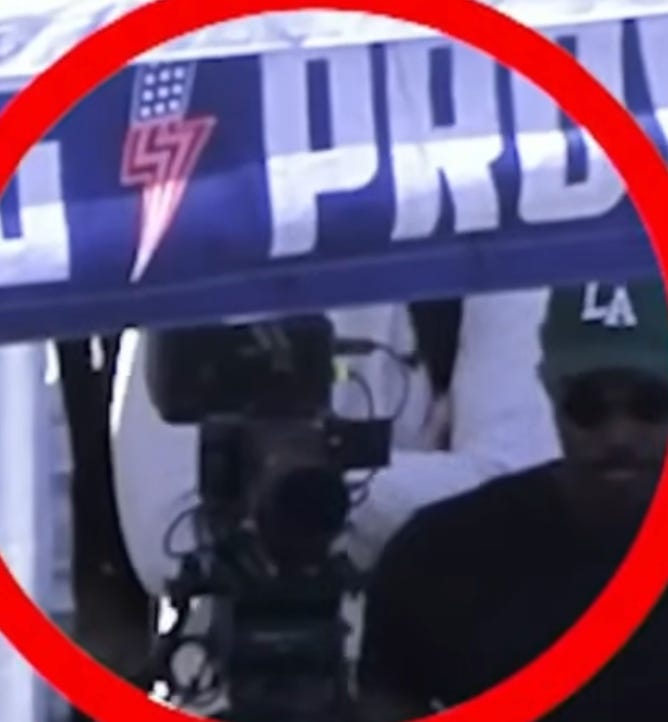
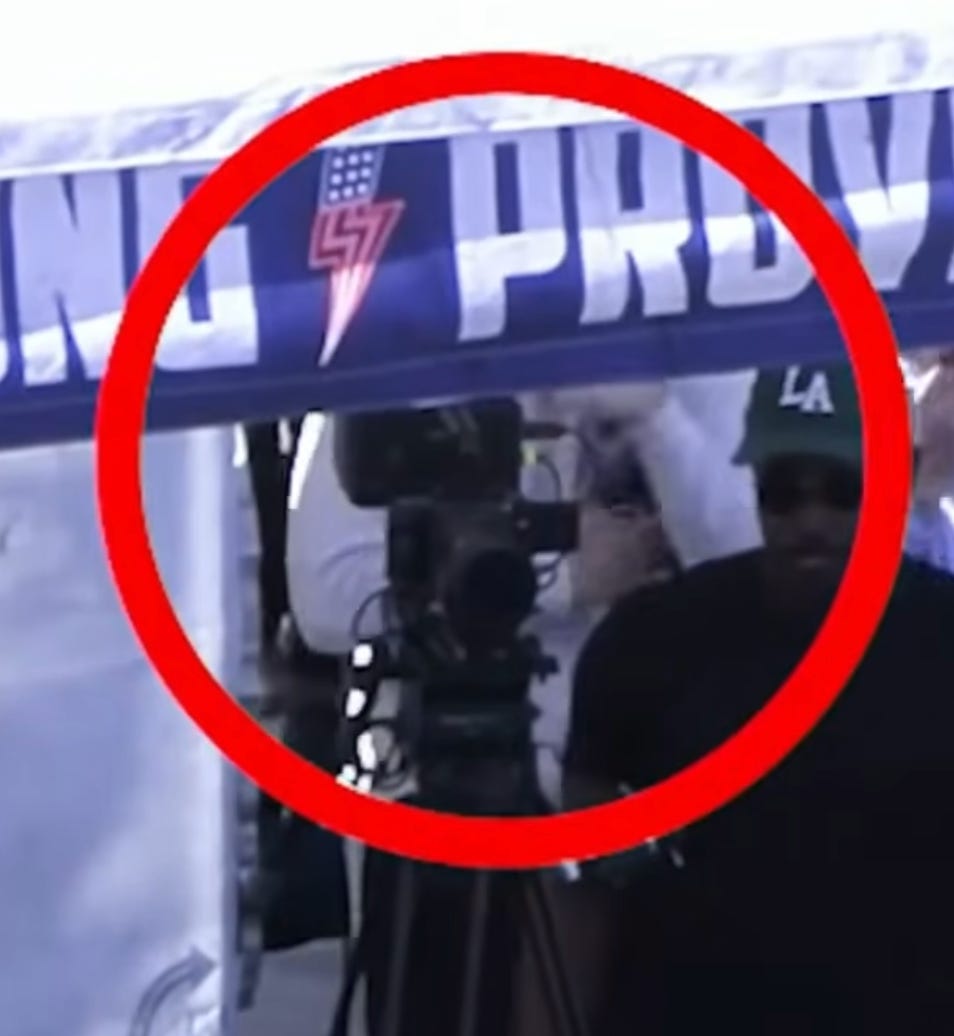
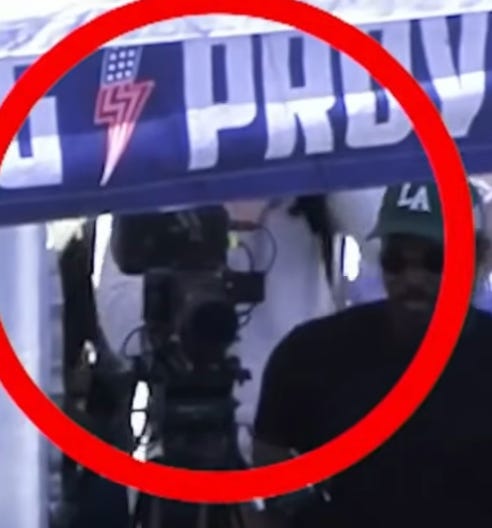
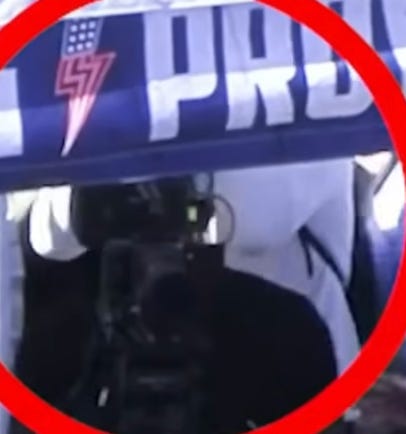
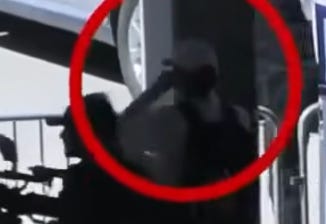
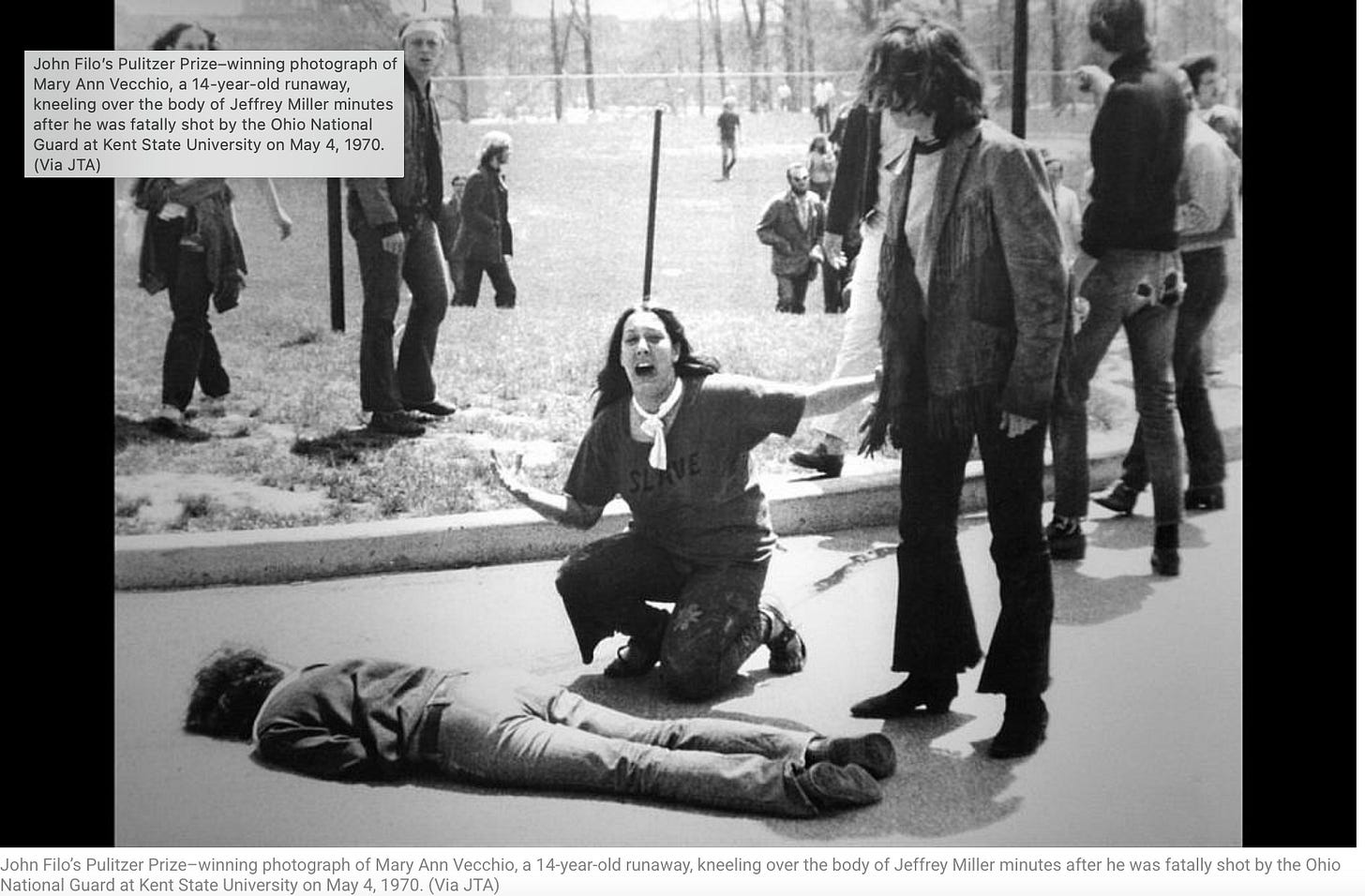
Thank you for looking into this. This entire timeline is bizarre, all of the actors around Charlie have not acted normally at all. Now we have Steve Deace calling Candace Owens "demonically possessed" for asking questions when Steve, who was friends with Charlie, is accepting the fabricated narrative with no questions. Nothing and nobody is making sense. Would love it if you continued to investigate this.
Sorry, you can look at this a million different ways, but there’s no way to explain ‘Mikey’s’ behavior as ‘normal’ or ‘’expected’. Mikey was “in” on this assassination. Everyone trying to explain this as anything else is just digging a bigger hole for themselves. Time to stop digging-we know what happened.